Supporting Women’s Economic Empowerment Project in the Philippines (GREAT Women Project 2)
| Project Holder | Philippine Commission on Women |
| Project Partners | Department of Agriculture Department of Science and Technology Department of Trade and Industry Bayan Academy ECHOSI Foundation, Inc. National Confederation of Cooperatives Socio-Economic Development Program- Multi-Purpose Cooperative |
| Period of Implementation | 2014-2022 |
| Project Budget | Cdn $ 8.0 million |
| PCW Counterpart | Cdn $ 1.26 million in cash and kind |
| Signing of Memorandum of Understanding | 26 November 2014 |
| Signing of Contribution Arrangement | 21 January 2015 |
| PO Activated in SAP (start date) | January 2015 |
| Fund Received at PCW | 05 May 2015 |
| First year full implementation | FY 2015-2016 |
| Actual End Date | March 2022 |
The Supporting Women’s Economic Empowerment in the Philippines Project or GREAT Women Project 2 is a project funded by the Government of Canada that seeks to improve the economic empowerment of women micro-entrepreneurs (WMEs) and their workers through (1) improving the competitiveness and sustainability of women’s micro-enterprises and (2) improving the enabling environment for women’s economic empowerment.
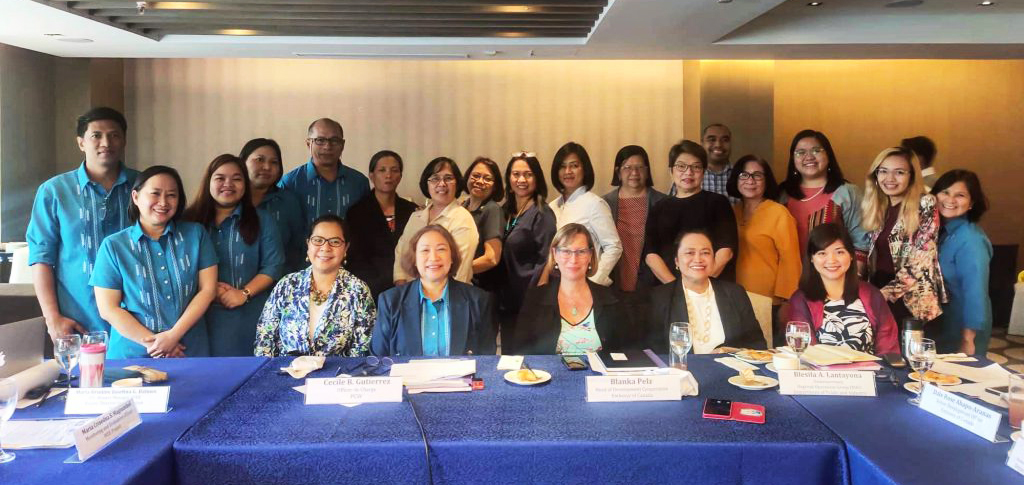
The Philippine Commission on Women (PCW) serves as the lead executing agency for the project. It is being implemented in partnership with different national government agencies such as the Department of Trade and Industry (DTI), Department of Agriculture (DA), Department of Science and Technology (DOST), and other attached agencies of the aforementioned. The project also works with private sector partners such as Bayan Academy, ECHOsi Foundation, National Confederation of Cooperatives (NATCCO), Socio-Economic Development Program Multi-Purpose Cooperative (SEDP-MPC), and other individual SMEs/entrepreneurs.
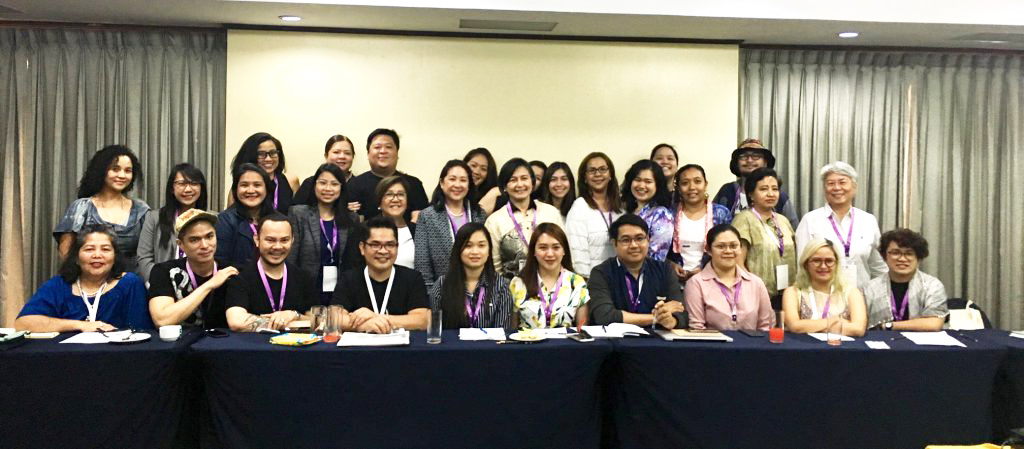
During the first two years (2015-2016), the DTI appointed a Project Management Team (PMT) at DTI 4A, which served as the national coordinating team for the agency and started implementing its approved work plan with 15 regions. Thus, the primary source of enrollment and provider of assistance to WMEs. The partnership with the DTI PMT brought about the development of essential tools such as
(a) a four-level competitiveness pathway based on the DTI’s export pathways that illustrates the competency and capacity-building needs of WMEs, and
(b) a monitoring and evaluation (M&E) system that considered the performance measurement framework of the project combining both women’s empowerment and business indicators and contributions to the improvement of the enabling environment.
Selected attached agencies and regional offices of DOST and DA were also involved in the design of activities and implementation during this period. In particular, these agencies included the Philippine Textile Research Institute (PTRI), the Food and Nutrition Research Institute (FNRI), the Industrial Technology Development Institute (ITDI) of DOST; the Philippine Center for Post-Harvest Development and Mechanization (PHILMech) of DA; and an initial selection of regional offices, namely: DA-Region 2, DA-Region 5, DA Region 6, and DOST-Region 11.

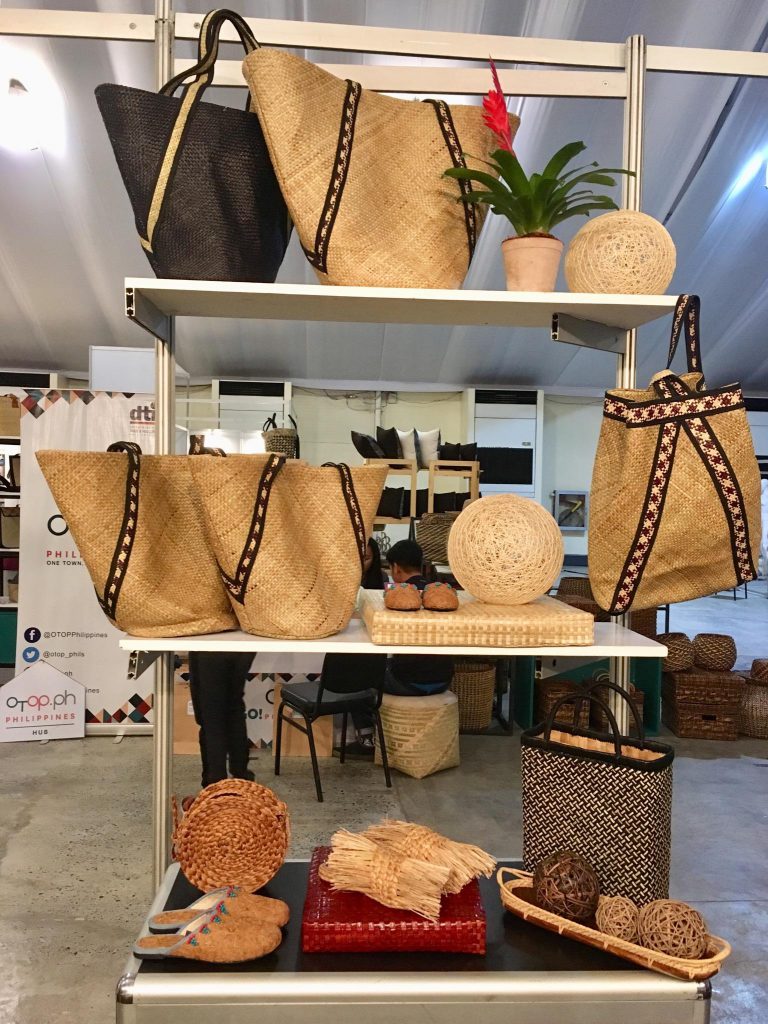
By FY 2017, the project started a collaboration with other government institutions such as the Food and Drug Administration (FDA), the Department of Information and Communications Technology (DICT), and the University of the Philippines Diliman Extension Program in Pampanga (UPDEPP) for technical capacity building activity implementation. During the same period, partnerships were built with selected private sector partners: ECHOSi Foundation, Socio-Economic Development Program Multi-Purpose Cooperative (SEDP), a Bicol Region-based cooperative, National Confederation of Cooperatives (NATCCO), and Bayan Academy. Each organization brought its respective institutional expertise in delivering services to WMEs. These included assistance on product development to facilitate access to markets, financial literacy and management, and the design of capacity-building programs for grassroots entrepreneurship integrated with empowerment and self-mastery processes.
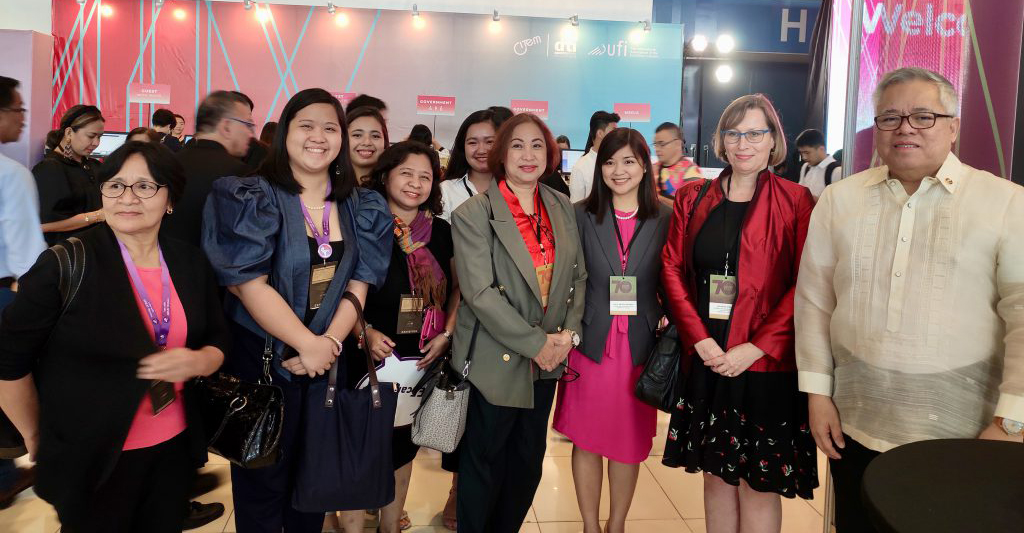
In December 2017, the Project Steering Committee (PSC) approved the adoption of the industry cluster development approach as a strategy to improve program implementation, harness existing convergence mechanisms, and align efforts with the National Industry Cluster Enhancement (ICE) Program to achieve targeted immediate and intermediate outcomes until end of the project (2020). A more focused project intervention will be provided for WMEs in the following priority industry clusters: (a) home style and wearables, (b) coffee, (c) cacao, and (d) processed fruits and nuts and selected high-value crops. This change was brought about in consultation with the DTI, the ICE Program holder.
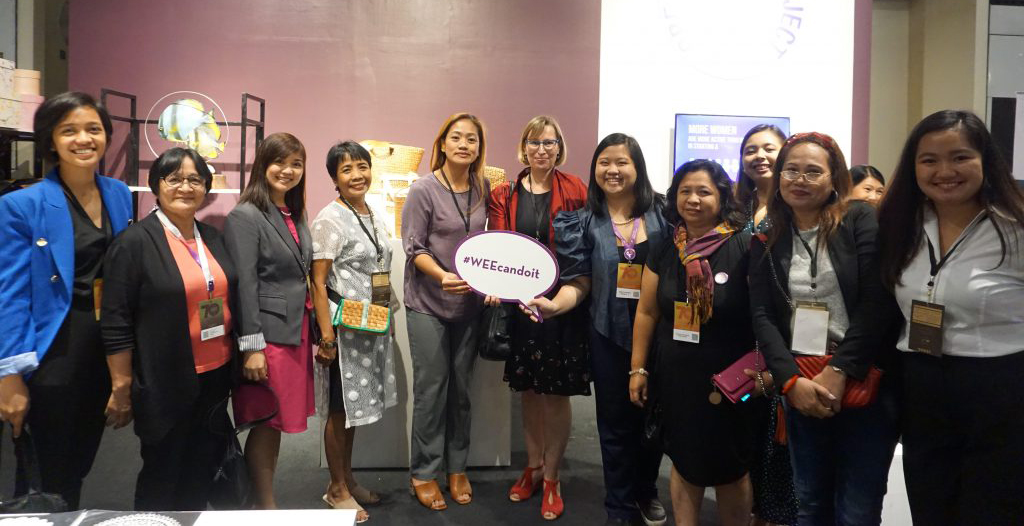
By 2018, PMO facilitated a series of validation and consultations to allow transition into the industry cluster approach. The following activities were conducted:
- PMO review of the list of WME enrollees by region and clusters. The majority in the list have incomplete profiles or data required for baseline.
- Inter-agency workshops that validated proposed regions and target WMEs per cluster. Discussions on the proposed national and regional implementing structure. Nine regions were identified as a priority, namely: Cordillera Administrative Region (CAR), Cagayan Valley (Region 2), Central Luzon (Region 3), CALABARZON (Region 4-A), Bicol Region (Region 5), Western Visayas (Region 6), Central Visayas (Region 7), Eastern Visayas (Region 8), and Davao Region (Region 11).
- Engagement with the head of the ICE Program within DTI’s Regional Operations Group, Asec. Blesila Lantayona and the respective industry cluster heads. Consolidation of project management at the PCW-PMO. The hiring of regional area coordinators reporting to PCW-PMO.
- Initiate WME profile updating with the DTI, DOST, and DA regional directors. Development of online database using KoBo Toolbox.
- Review and revise the project’s performance measurement framework (PMF), including validation of indicators for GAC approval and enhancement of reporting and monitoring tools.
- Conduct regional WME assemblies to re-introduce the project, address data gaps in WME profiles and needs, and facilitate clarity of the WMEs’ personal and business visions.
- Conduct consultation meetings with the DTI Industry Cluster Heads and regional focal persons to discuss the industry roadmap and identify priority activities that the project can support.
- PMO-facilitated review of the memorandum of agreement (MOA) and drafting of the work and financial plans per region and agency. Some regions opted to develop a convergence of partners plan (e.g., CAR), while others proposed different fund support arrangements. Deadlines were agreed on in terms of enrolment of WMEs. PCW-PMO made representations with the Bureau of Treasury to facilitate faster fund transfer to partners using the current GOP-modified disbursement system. The results of these consultations will be part of the provisions of the MOA.
The above-cited activities resulted in the following by December 2018: (1) encoding of 366 WME profiles completed and validated out of the total 587 profiled WMEs as of January 30, 2019; an additional profiles of over 100 WMEs are still in various stages of validation, including WME confirmation/signature on the information sheets), (2) GAC-approved PMF and reporting and monitoring tools disseminated to the area coordinators and project focal persons, (3) reaffirmation of support and commitment to the WEE project by all partners, (4) nine partners have submitted their draft work and financial plans, while the rest are in the process of completing their drafts, (5) revised MOA routed for approval of regional partners, and (6) hiring of a project coordinator to take charge of monitoring and technical coordination at the national level for DTI by March 2019.
By January 2019, the PMO continued to work with PCW Management Committee to deliver the following: (7) consultations held with the Bureau of Treasury (BTr), which allows regional partners with approved MOA and work plans to open an MDS trust account that hold project funds and will be valid for one calendar year as a way to improve fund support management, (8) revisited the national cluster road maps for coffee and wearables/homestyle with DTI cluster leads to determine strategic assistance in regional work plans which are now part of the 18-month work plan, and (9) revived the convergence groups or regional technical working groups (RTWGs) to strengthen collaboration mechanism at the regional level.
As of 21 May 2019, the project has already reached 831 profiled and enrolled WMEs along with its 15,770 employees, of which 75 percent or 11,760 were female workers. It has also fostered formal partnerships by signing the Memorandum of Agreements with 34 implementing partners composed of national and regional government agencies and private sector partners. These partners have also secured Work and Financial Plans (WFPs) to implement the WEE Project in 11 regions throughout the Philippines.
Number of Enrolled Women Micro Entrepreneurs
| Region | Number of WMEs |
| CAR | 73 |
| II | 111 |
| III | 63 |
| IV-A | 79 |
| V | 122 |
| VI | 75 |
| VII | 98 |
| VIII | 55 |
| IX | 129 |
| X | 10 |
| XII | 16 |
| Total | 831 |
RESOURCES:
Feature Stories
- WEE Project Micro Entrepreneurs Showcased in IFEX Philippines
- Pre-Manila FAME: Product Design and Development Workshop for
GREAT Women Microentrepreneurs - Women micro entrepreneurs capacitated on Cacao Farming and Production

